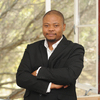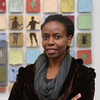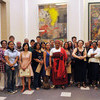Higher education research results via MOOC
15 March 2019 | Story Supplied. Photo Supplied. Read time 6 min.
Increasing the impact of research via wider dissemination of the findings is a well-known strategy. Now, thanks to a specially created Massive Open Online Course (MOOC), the University of Cape Town (UCT) is set to share the results of a two-year investigation into changes in the higher education landscape here and in the United Kingdom.
The MOOC, The Unbundled University, the Market and Digital Technology, was created as part of an international collaborative research project between UCT and Leeds University, which examined how market forces and digital technology are changing higher education, particularly in respect of emerging models of teaching and learning.
Professor Laura Czerniewicz, director of UCT’s Centre for Innovation in Learning and Teaching (CILT), who was a principal investigator on the study along with Professor Neil Morris, dean of the Digital Education Service at Leeds University, said a MOOC such as this one offers an innovative way to share newly-generated knowledge and to showcase research outputs
“By creating openly licensed learning materials related to research, extended sharing and reuse can increase the impact of research findings,” she added.
The research project, The Unbundled University: Researching Emerging Models in an Unequal Landscape, represents a unique collaboration between two leading universities. It explores one of the key changes in the context of global inequality – the unbundling of higher education.
Unbundling teaching and learning
Teams working in both countries interviewed key higher education stakeholders about their take on the future of university education in the context of technology and the “unbundling” of various functions of teaching and learning, Czerniewicz explained.
“By creating openly licensed learning materials related to research, extended sharing and reuse can increase the impact of research findings.”
Jointly funded by the South African National Research Foundation (NRF) and the UK’s Economic and Social Research Council (ESRC), the research was presented recently at a day-long higher education stakeholder event in Johannesburg, hosted by the team and the Council for Higher Education (CHE). The MOOC was launched at the same event, which was the first of two that are planned. They are aimed at policymakers and senior decision makers.
The Unbundled University, hosted on the FutureLearn platform, presents the key concepts in the research through two weeks of learning online, which is open to all. The course format allows users to learn at their own pace, also engaging with others taking the course if they choose. There are no exams or assessments.
“It was an extraordinary experience to be the co-principal investigator of an international research collaboration and one of the lead educators on an open online course about such key strategic issues in higher education,” said Czerniewicz.
“I found it both challenging and stimulating [and] am looking forward to sharing our deliberations through the course. I am hoping that many with interests in higher education in South Africa will engage with us on these key debates.”
Influencing policy and practice
Another new UCT MOOC, Research for Impact, offers researchers in the environment and development sector insight into how to do research differently in order to amplify its impact.
The course, launched in January, uses a large climate adaptation research project as an example of how to take an approach designed to influence change in policy, practice, behaviour and attitudes. It was developed out of a research collaboration between UCT’s African Climate and Development Initiative (ACDI) and Oxfam GB on the large, multiregional, five-year project called Adaptation at Scale for Semi-arid Regions (ASSAR) Project.
“I am hoping that many with interests in higher education in South Africa will engage with us on these key debates.”
Research for Impact is aimed at supporting researchers who want to share knowledge beyond academic publications and journal articles. The six-week online course is anchored by the ASSAR project leaders Professor Mark New and Jesse DeMaria-Kinney, who share their experience of doing research for impact. With guest researchers and practitioners who followed this approach in their research, the course explores its five elements, namely theory of change; stakeholder engagement and strategic partnerships; strategic communication; capacity development; and influencing.
A third socially-responsive research project, Teacher Empowerment for Disability Inclusion (TEDI), is using MOOCs to disseminate its research to teachers.
Located in the Disability Studies Division, the TEDI project is founded on a large research process to gather data on disability in education in South African schools. Various teacher empowerment courses, including four MOOCs, are among the project deliverables.
The first course, Disability Inclusion in Education, was launched in December 2018. Three more courses will follow to share the findings of the research and to empower teachers to adopt inclusive teaching practices.
- See the promo video for The Unbundled University.
- Enrol for free. The course is open to anyone, and the content if free. Users can also pay for extended access and to become eligible for a certificate.
- Read about other UCT MOOCs.
 This work is licensed under a Creative Commons Attribution-NoDerivatives 4.0 International License.
This work is licensed under a Creative Commons Attribution-NoDerivatives 4.0 International License.
Please view the republishing articles page for more information.
Centre for Higher Education Development
In the news


.jpg)
















































































































































































































